LGBTQ+ Pioneers in Surgery
Crowdsourcing ideas for individuals, groups and histories to include, from colleagues across the division, the project launched during LGBTQ+ history month 2023 and the process of collaborative archival research spanned the following year.
Commissioned to lead the process of curation, and produce the artworks, Frederick Kannemeyer is an architect with cross-disciplinary expertise, working between different media including collage, photography, painting and coding, often breaking the rules of his chosen medium and celebrating the glitches.
The art will also be exhibited at Charles Bell House during Pride Month 2024. Open the images in a new tab to see in greater detail.
Barbara Burford
09 December 1944 – 20 February 2010
Medical scientist, writer of fiction, plays and poetry and lifelong diversity activist, Dr Barbara Burford was born in Jamaica, moved to the UK aged 10 and attended Dalston Country Grammar School and studied medicine at the University of London.
Dr Burford joined the NHS in 1964, specialising in electron microscopy, before leading a team at the Institute of Child Health and Great Ormond Street Hospital for Children that was central to several breakthroughs in heart and lung transplant surgery for infants and children.
The Barbara Burford Honour (Excellence in STEM) was founded in 2017 as part of the Gay Times Honours, which recognise LGBT individuals who have made a difference in their field.
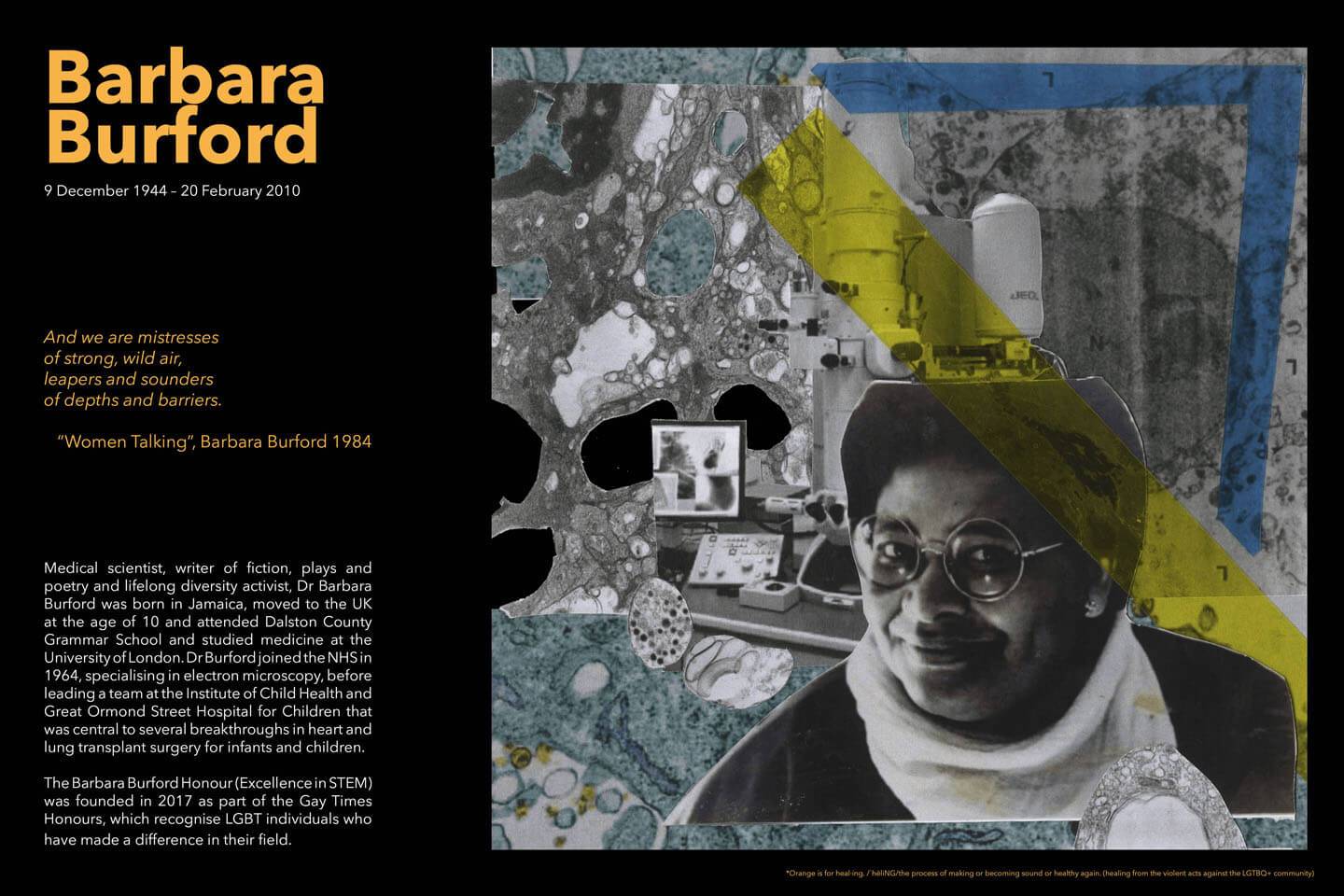
Ginny Bowbrick
Miss Ginny Bowbrick is a consultant vascular surgeon and Chair of the Pride in Surgery Forum (PRiSM) at RCS England.
She is a proud and out surgeon and a key driver for greater LGBTQ+ inclusivity within surgery. Miss Bowbrick qualified in 1989 from the Medical College of St. Bartholomew’s Hospital, London, and underwent basic and specialist surgical training in London and Kent hospitals.
Miss Bowbrick is Head of School of Surgery for Kent, Surrey and Sussex, Royal College of Surgeons (RCS) England Council Member, Chair of the Vascular Surgery Special Advisory Committee, Chair RCS England Pride in Surgery Forum (PRiSM).
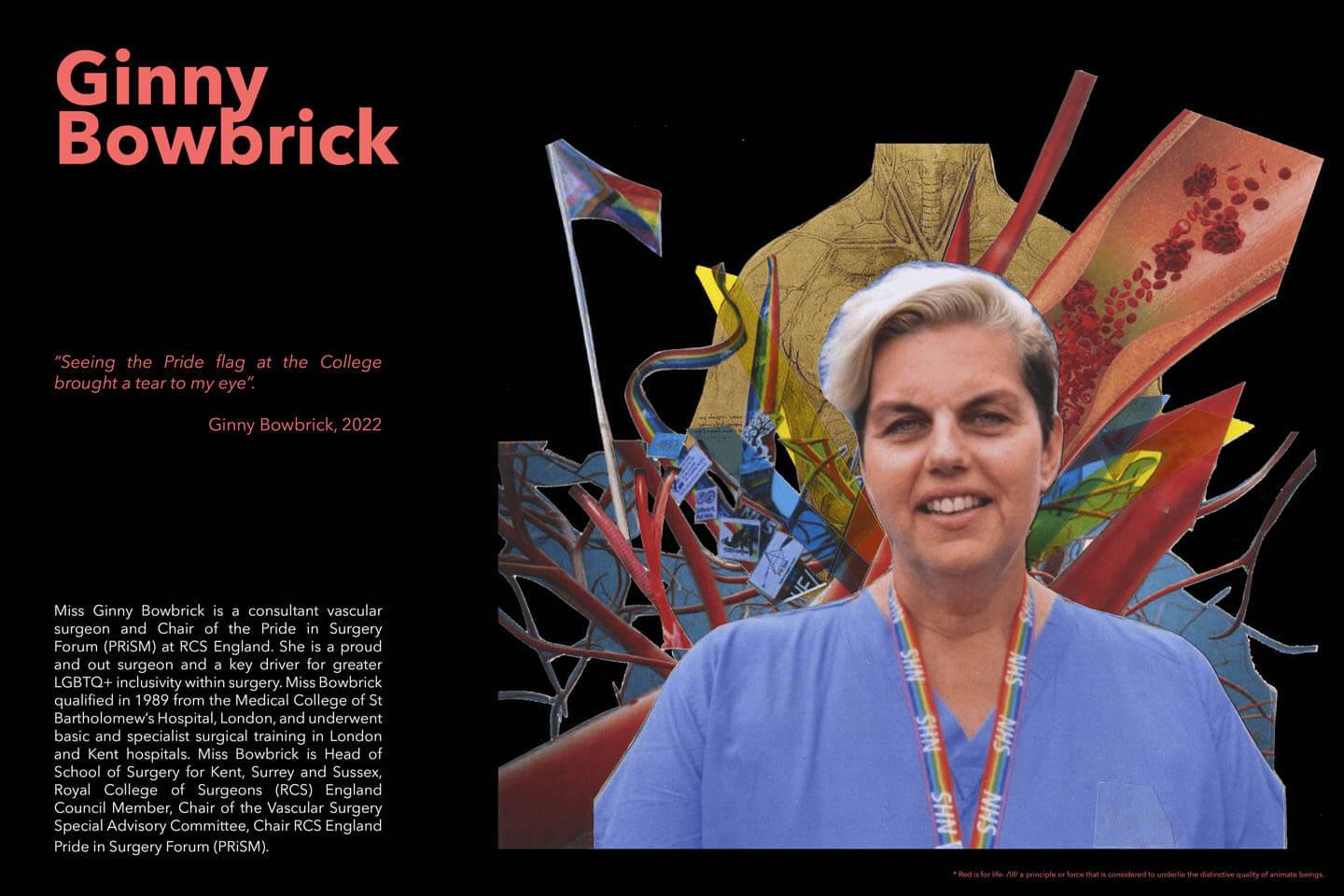
Patrick Trevor-Roper
07 June 1916 – 22 April 2004
Patrick Trevor-Roper was born in Northumberland, the son of a doctor, and educated at Charterhouse, the University of Cambridge and the Westminster Medical School. During World War II he served in the Royal New Zealand Army Medical Corps in the Mediterranean. After the war he specialised in ophthalmic surgery.
In 1955 Mr Trevor-Roper agreed to appear as a witness before the Wolfenden Committee which had been appointed by the British government to investigate, among other things, whether male homosexuality should remain a crime.
Trevor-Roper told the Wolfenden Committee gay men led normal and well-adjusted lives, posed no threat to children or public morality, and that homosexuality was not a physical or mental illness. His testimony helped persuade the committee to recommend that male homosexuality should be decriminalised, which was finally done, after a long political struggle, in 1967.
Trevor-Roper remained an active gay rights activist, and helped found Terrence Higgins Trust, which held its first meeting at his home.
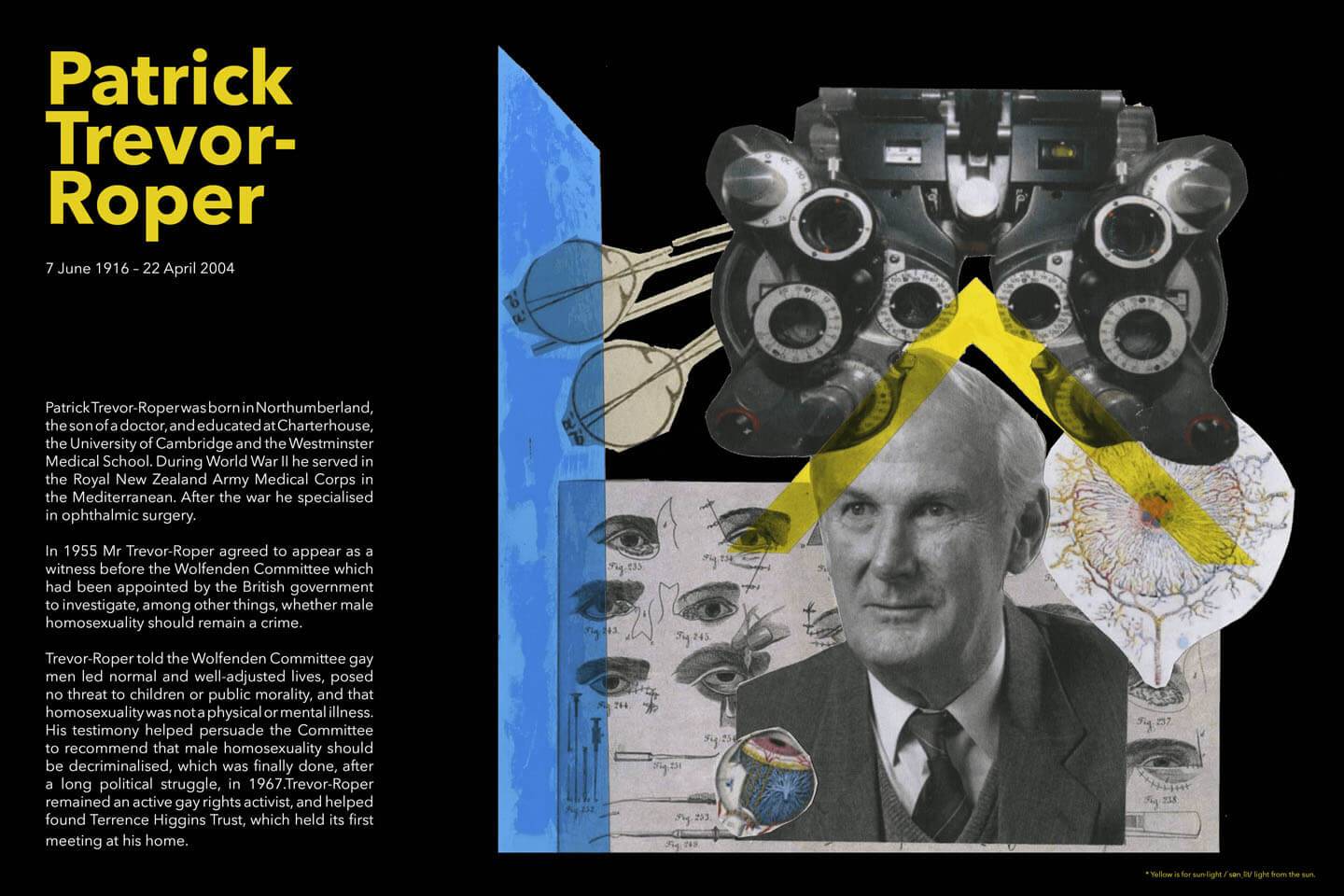
Harold Gillies
17 June 1882 – 10 September 1960
Sir Harold Delf Gillies OBE FRCS was a New Zealand otolaryngologist and father of modern plastic surgery. Having previously constructed penises for soldiers injured in WW2, between 1946 and 1949, he carried out one of the first gender affirmation phalloplasties on Laurence Michael Dillon, officially registering the surgery as ‘treatment for acute hypospadias’ to conceal its true purpose.
Following his transition and surgery, Dillon himself went onto enrol at Trinity College Dublin medical school, to write the first English language text on 'Transsexuality', and to perform Britain's first known male-to-female gender affirmation surgery, for WW2 fighter pilot (and UCL engineering graduate), Roberta Cowell.
Again, secrecy was required as the surgery was illegal at the time, under so-called 'mayhem' laws. Dillon also introduced Cowell to Gillies, who subsequently completed her affirmation surgery.
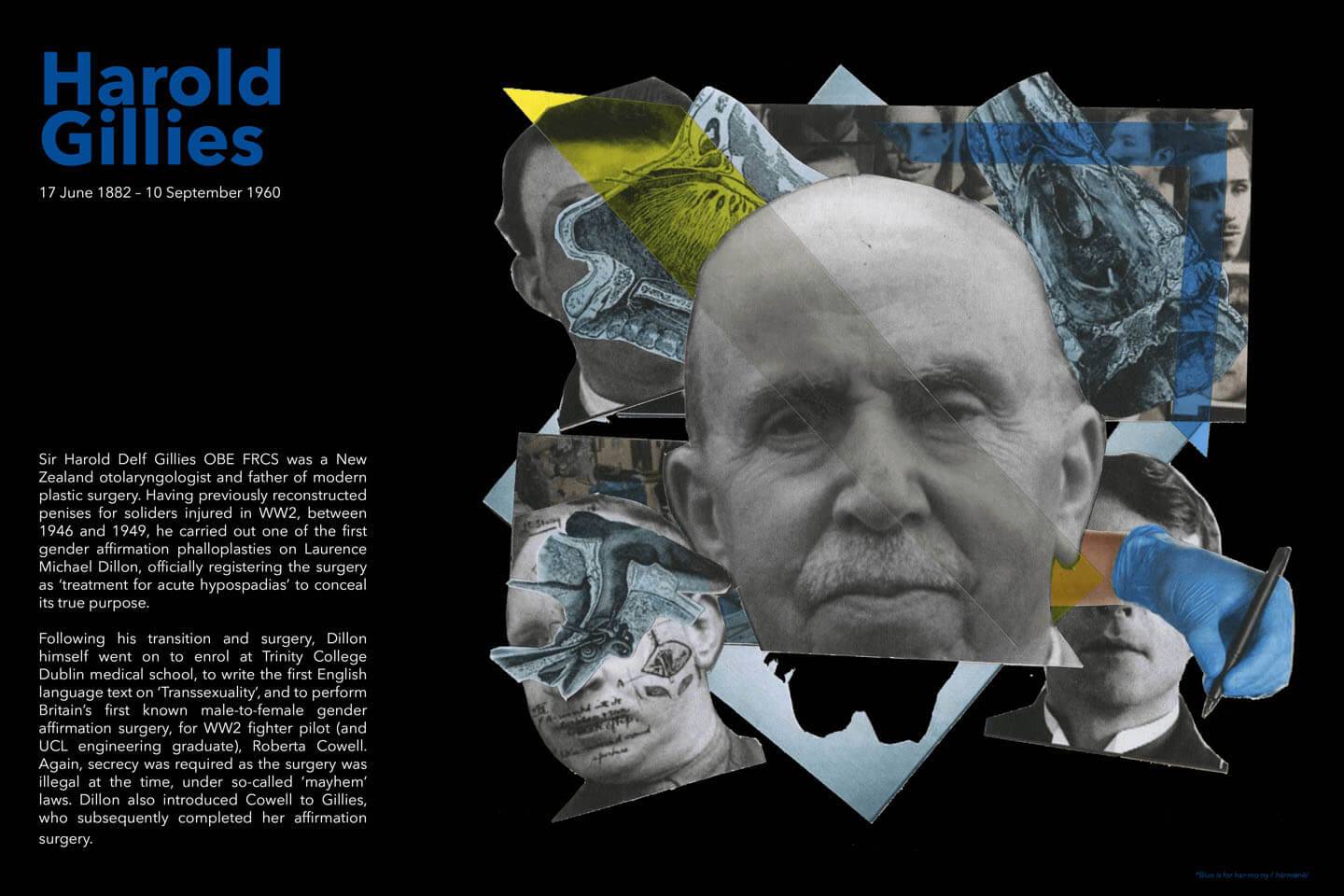
Louisa Garrett Anderson
28 July 1873 – 15 November 1943
Louisa Garrett Anderson CBE was a medical pioneer, a member of the Women’s Social and Political Union, a suffragette, a social reformer, and a Fellow of the Royal Society of Medicine. She was the daughter of the medical pioneer Elizabeth Garrett Anderson, whose biography she wrote in 1939.
Anderson and her partner, fellow doctor and suffragette Dr Flora Murray founded the Women’s Hospital Corps during WW1, Anderson acting as its Chief Surgeon. In 1915, as casualties were evacuated to England for treatment, the War Office invited Murray and Anderson to return to London to run the Endell Street Military Hospital, which treated almost 50,000 soldiers between May 1915 and September 1919.
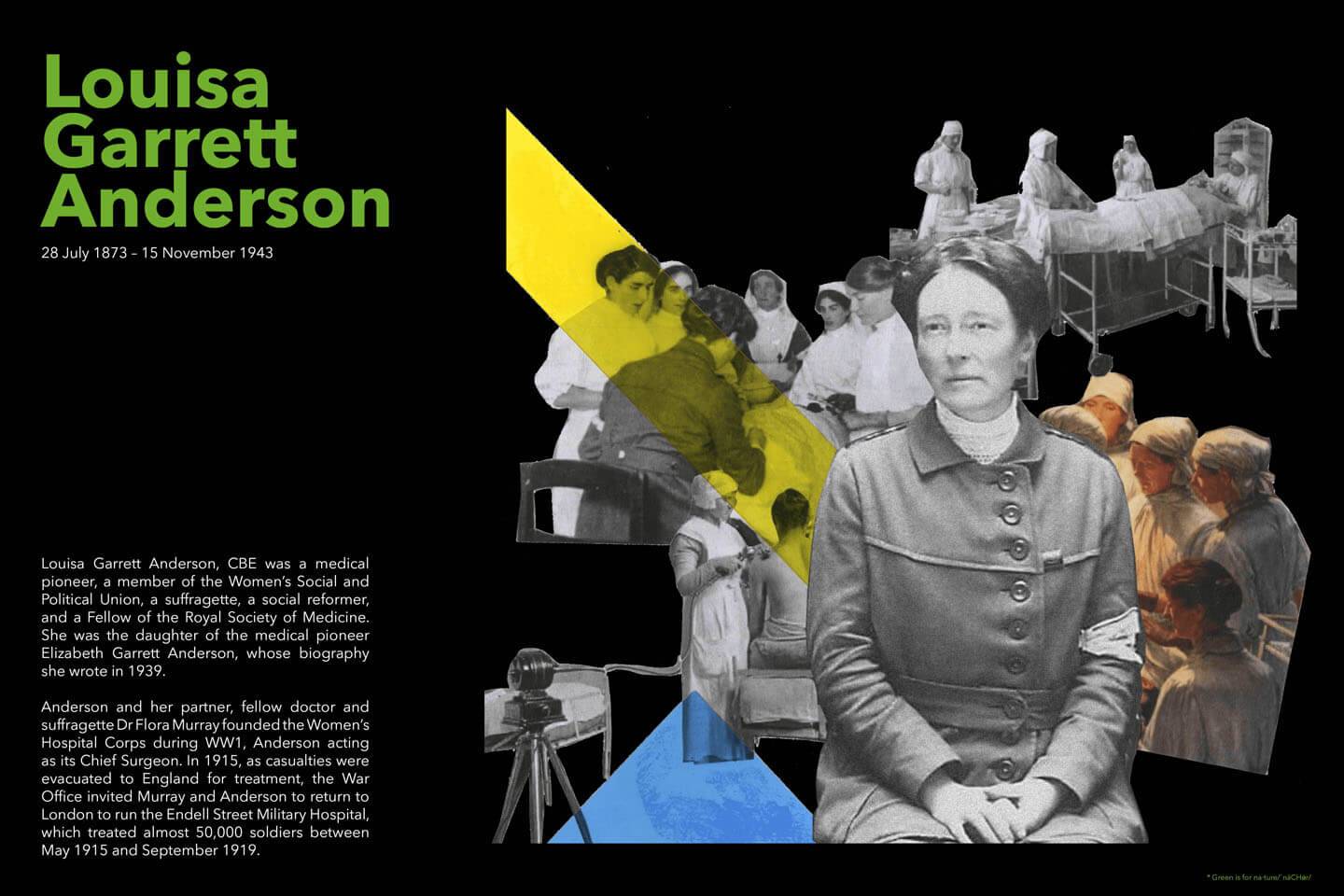
Sophia Jex-Blake
21 January 1840 – 07 January 1912
Sophia Jex-Blake was an English physician, teacher, and feminist. She led the campaign to secure women access to a university education, when six other women and she, collectively known as the Edinburgh Seven, began studying medicine at the University of Edinburgh in 1869. She was the first practising female doctor in Scotland, and one of the first in the wider United Kingdom of Great Britain and Ireland. A leading campaigner for medical education for women, she was involved in founding two medical schools for women, in London and Edinburgh, at a time when no other medical schools were training women.
The London School of Medicine for Women, co-founded with Emily and Elizabeth Blackwell and Elizabeth Garrett Anderson, became in 1874 the first medical school in Britain to train women as doctors. In 1998, the school of medicine merged with the University College Hospital Medical School. Jex-Blake is assumed to have been in a romantic relationship with Dr Margaret Todd, graduate of the Edinburgh School of Medicine for Women, and coined the term 'isotope'.
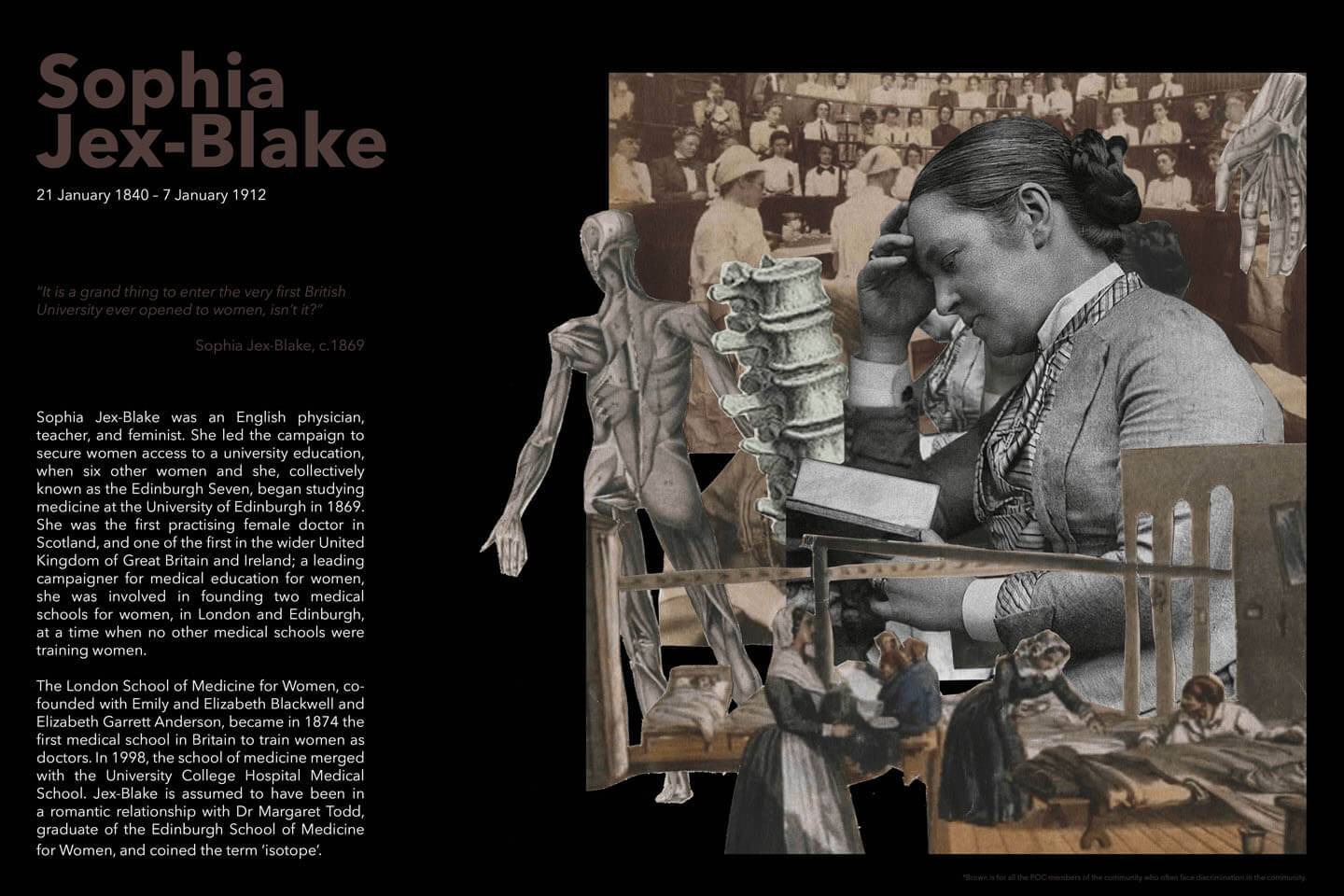
GLADD
Est. 1976 by Martin Hamilton-Farrell and others.
GLADD (the Association of LGBTQ+ Doctors and Dentists) is the UK's only organisation that unites and represents LGBTQ+ doctors, dentists, medical and dental students from all over the country.
GLADD has a respected national voice in LGBTQ+ health activism and education, working with leading figures such as the British Medical Association, General Medical Council, Royal Colleges and Parliament.
Collaborating with universities and the NHS to further research into LGBTQ+ health issues and deliver training aimed at empowering those working in and studying healthcare to tackle discrimination in support of LGBTQ+ colleagues and patients.
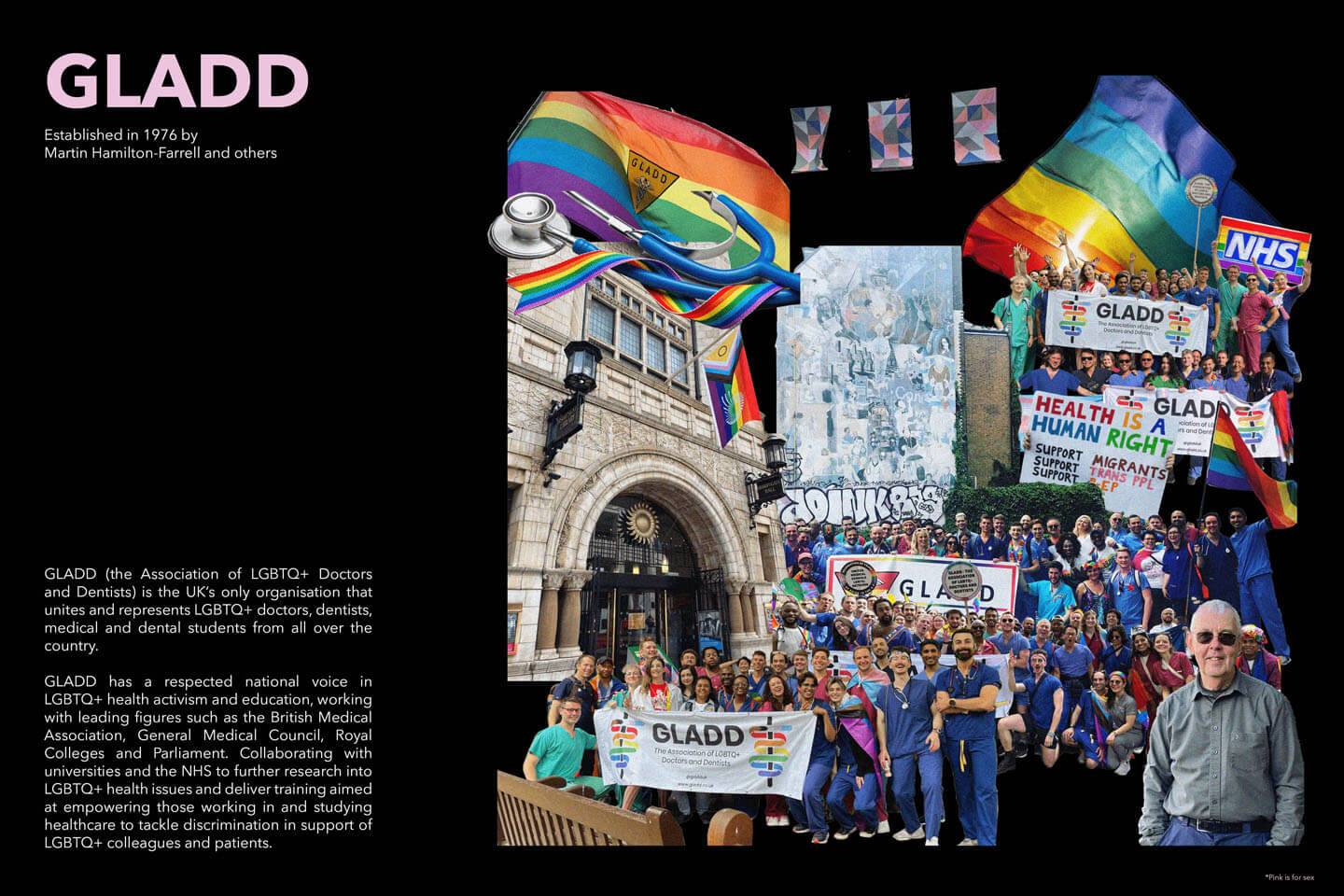
PRiSM
Formed 2021
The Pride in Surgery Forum (PRiSM) held the landmark conference 'Out at the College' at RCS England in March 2022 and has since become formally affiliated with RCS England. PRiSM is a group of LGBTQ+ individuals and allies working towards cultural change in surgery.
PRiSM will develop a network of LGBTQ+ individuals and allies; provide mentorship and support; produce inclusive policies and guidance; raise the visibility and profile of the surgical LGBTQ+ workforce; and perform outreach work with medical students and trainees to encourage them to pursue surgical careers.
PRiSM aims to make surgery an inclusive specialty that is attractive and welcoming to the diverse surgeons of the future.
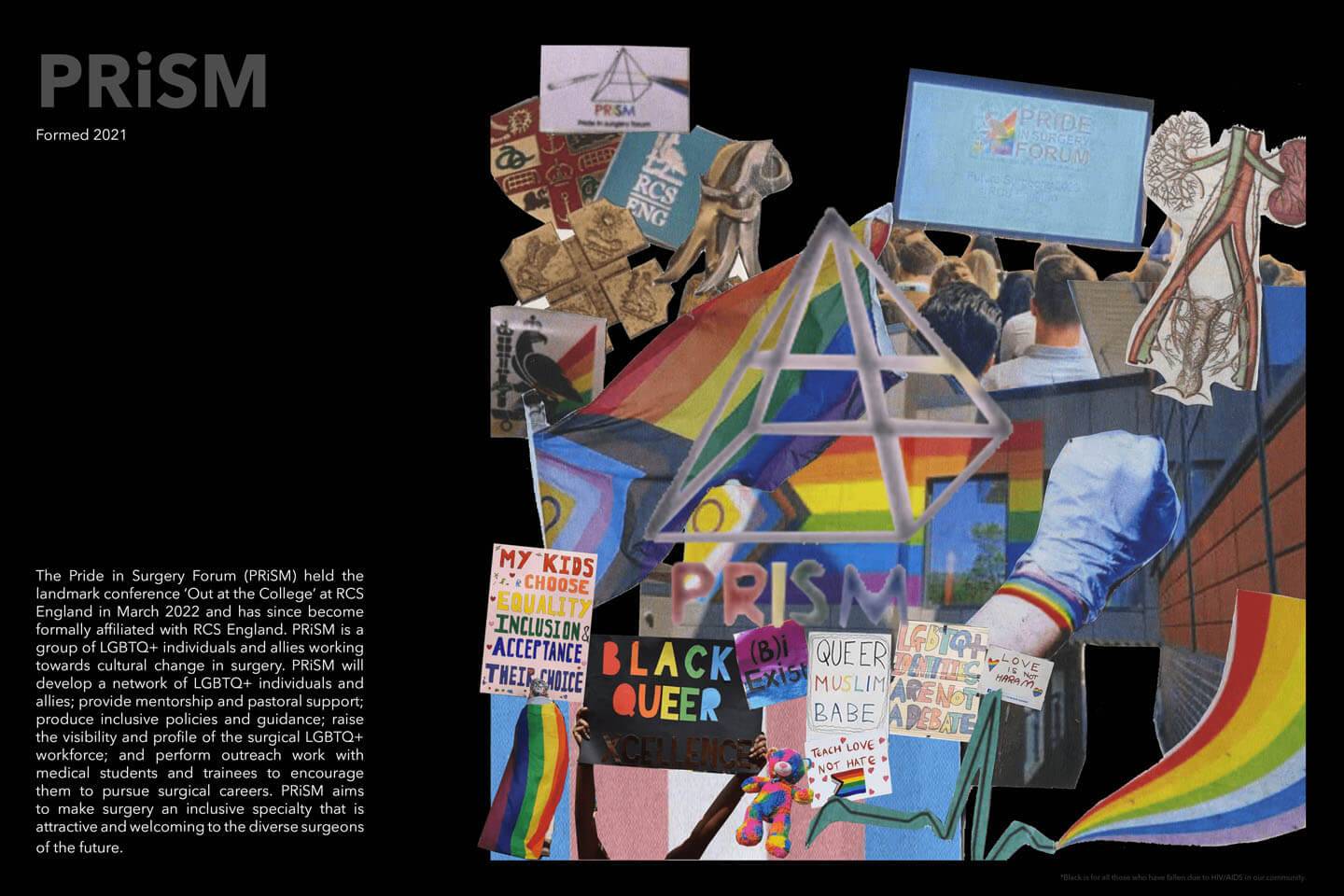
56 Dean Street
Est. 1862 as world's first venereal disease clinic for men.
56 Dean Street, based in Dean Street in London’s Soho district, is a sexual health clinic. Part of the Chelsea and Westminster Hospital NHS Foundation Trust, it also has a second branch, Dean Street Express, at 34 Dean Street, which offers a fast-turnaround testing service. As of 2017, the clinic was the largest HIV clinic in Europe.
In addition to its specialism in HIV infection and other sexually transmitted diseases, it also offers general sexual health care services, including contraception. The clinic also runs TransPlus - the UK's first integrated NHS gender dysphoria, sexual health, and HIV service.
56 Dean Street is recognised internationally for its innovation, particularly in regard to its engagement of London’s higher-risk communities as well as HIV epidemic management. HIV combination prevention is the multi-factoral approach to addressing the HIV epidemic.
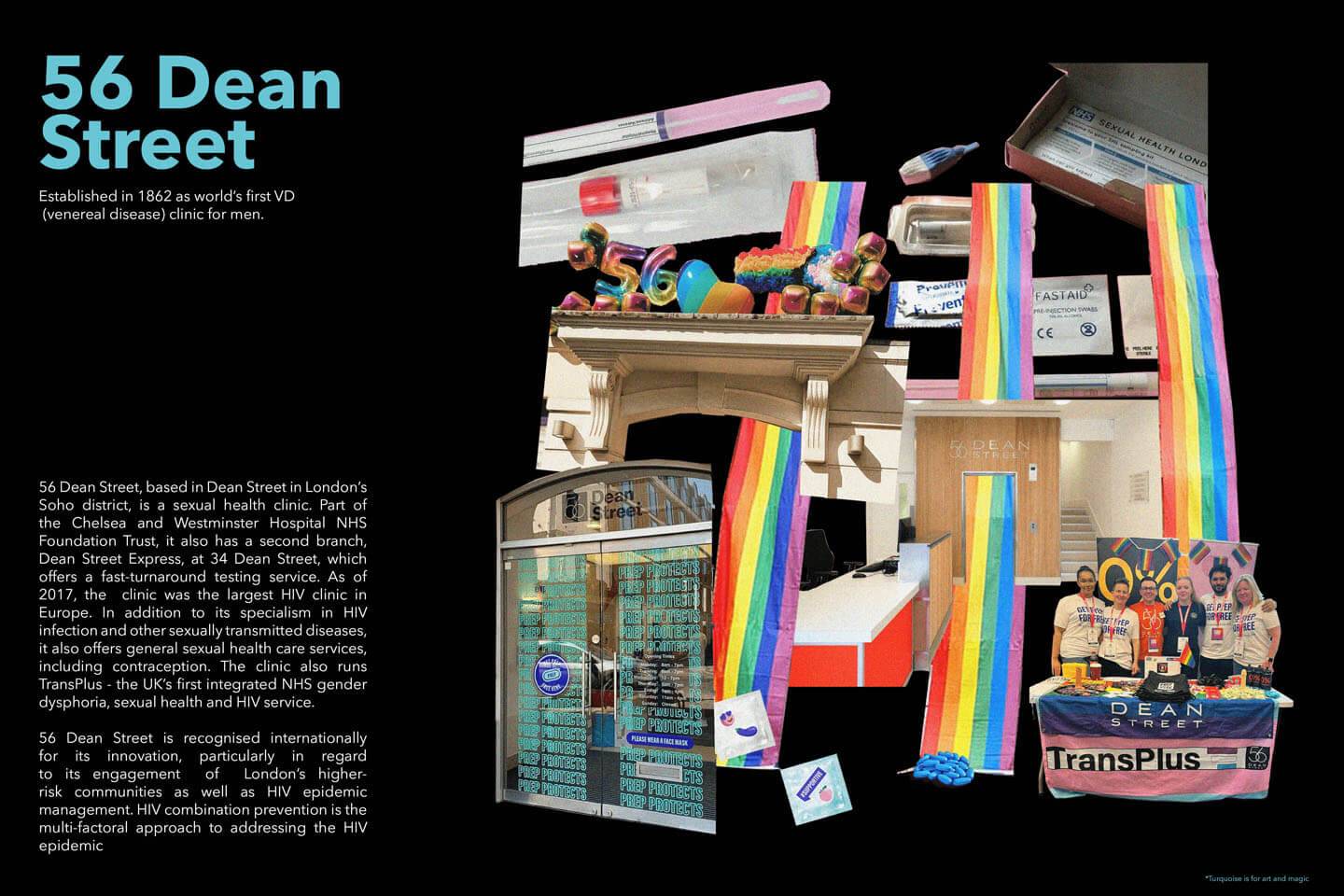
 Close
Close

